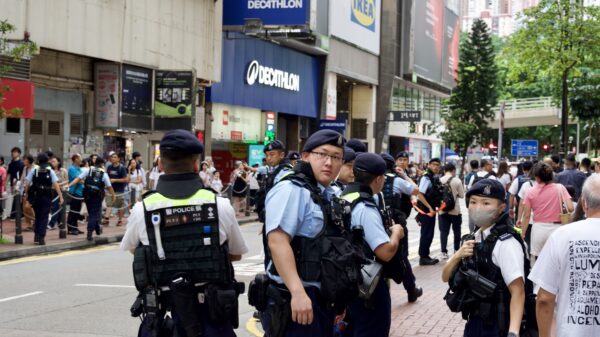Editor-in-Chief Fintan Hogan looks at the role of the news media in its coverage of conflict after an apology from The New York Times today.
In spring 2022, the world watched on as Russia began its invasion of Ukraine. For those in the West, it was a story without much hope: a major war on European soil, waged by a UN Security Council member. Few had seen such an open act of aggression coming. If it hadn’t done so already, history abruptly restarted.
Good news was thin on the ground as bombs fell on Kyiv. That’s exactly why we all looked to the skies. The Ukrainian Security Services (SBU) praised a jet pilot who had allegedly downed half a dozen Russian planes, calling them an “angel” and a “ghost”.
So the legend of the Ghost of Kyiv was born. It spread around the world at supersonic speed. Ukrainian officials promised that the legendary pilot was real, that he’d shot down yet more Russian aircraft and that old Soviet dogfighters were outmanoeuvring new Russian stock. The Ghost was a cause for hope in an otherwise out-gunned, out-flanked and out-on-its-feet nation.
Yet when Andrii Pilshchykov died in a training accident on 25 August this year, there was little fanfare. It was his picture that had accompanied the incredible deeds of the Ghost, but that mattered little. In the year that had passed since the invasion, Pilshchykov had gone back to being known as ‘Juice’ – so-called for his regular order at the staff bars. His story had been forgotten once journalists realised that the numbers simply didn’t add up. The Ghost was just the opening shot in the information war.
The conflict in Ukraine has ground on, largely unchanged, since then. But the war in your pocket has opened a hundred new fronts over the last year. The competition for information dominance is perhaps as important in modern warfare as is the competition for the skies. Control of the narrative is vital when a government on the other side of an ocean can decide whether your country wins or loses its existential battle. American voters all too often indirectly decide who lives and who dies.
Sadly, the last few years have shown starkly that the conventional news media must do a better job at reporting the facts of war. Acts of self-sacrifice, like claims of a ‘Ukrainian tankman’, are amazing human narratives which must be told, if true. Yet the information landscape during a conflict is too littered with deception to be easily comprehensible. Amid feeble warnings of checking for ‘information hygiene’, we’re all really living through an epidemic of misinformation.
Whether the source seems trustworthy or duplicitous, noble or reprehensible, it’s vital that the news starts to do a better job at presenting claims as claims and facts as facts. It should be up to the media to present all of the available information, and up to the consumer to judge the veracity of an allegation. There are terrible, perverse incentives for newspapers and broadcasters to assume the best and the worst of the stories that they are covering. Propaganda wins eyeballs – that’s why it’s out there in the first place.
Today, The New York Times apologised for uncritically running a claim from Hamas-affiliated agencies that an Israeli airstrike had killed 500 in and around Al-Ahli Hospital in Gaza City. The editorial statement said that they had “relied too heavily on claims by Hamas, and did not make clear that those claims could not immediately be verified”. A UK government investigation found that the damage was inconsistent with an Israeli airstrike and was likely caused by a misfiring rocket launched from within the Gaza Strip. The New York Times was therefore right to conclude that its report “left readers with an incorrect impression about what was known and how credible the account was”. This is not even to say that the UK government is correct in its assessment, simply that if the facts are still disputed at this stage of the conflict, then reporting a claim as true in the immediate aftermath was terribly irresponsible.
Yet irresponsibility has been built into the coverage so far. The UN uses the “de facto authorities” in Gaza as the source for its headlines. The BBC announced “Hundreds feared dead or injured in Israeli air strike on hospital in Gaza, Palestinian officials say”. That clause, “Palestinian officials say”, nestled at the end of a horrifying claim, is indicative of the failure of the news media in recent weeks. The Gazan Health Ministry doubtless does difficult, dangerous and life-saving work, yet the PR of any participant, let alone those controlled by an organisation designated by the UK government as terrorist, cannot be treated this uncritically. The unverified claim about the hospital airstrike was linked to attacks on embassies and synagogues in Europe.
It’s also important that, at this stage, Israeli claims should be treated with as much scepticism as ones from Palestinian sources. Israel is a democratic nation which attacked Gaza in retaliation for a heinous and unjustifiable surprise attack (this is not to condone or condemn the actions of the IDF since). But a similar case applies to Ukraine and the story of Pilshchykov. Information warfare is an inevitable part of modern conflict and all sides should be expected to participate in the attempt to control the narrative.
The claims of neither Kyiv nor Moscow, Tel Aviv nor Gaza, should be taken at face value, whatever one believes about the righteous of their plight. The tragedy at the hospital did deserve immediate coverage and the claims of the Gazan Health Authorities should have been included in the report. But headlining a story or sending out a push notification to millions based on an unverified allegation was thoughtless. The risk of it later being revealed as false risks undermining the entire project of the fourth estate: to fairly frame political issues and to hold those in power to account. In the social media environment, false claims spread like wildfire and risk burning the house down.
The most unforgivable consequence of The New York Times, the BBC and others’ reporting of the Al-Ahli bombing is that it will reduce public confidence in genuine stories of Palestinian suffering. It will cast doubt on the motives of peaceful Palestinian protesters in London and amplify the criticism of the small minority who are voicing support for Hamas. It will dampen down concern at the civilian injuries sustained in the bombing campaign, and even reports of the deaths of children, if the leading stories from news agencies cannot be trusted. Considering that what is happening in Gaza essentially amounts to siege warfare, with legitimate questions over international law, a potential reduction in the public appetite for providing medical aid, food and water to the 2 million people who are trapped in the Gaza Strip would be a travesty.
Our current media landscape is a desperate scramble for attention, but unless the temptation to accidentally parrot deliberate falsehoods is resisted, the entire purpose of the press rests of shaky foundations. Proper language and responsible reporting is vital, as the BBC has recently acknowledged by settling on ‘Hamas terrorists’ as the default over ‘Hamas militants’ (an issue that this newspaper has had difficult editorial conversations over) and acknowledging that its coverage of the hospital bombing was “wrong to speculate in this way”.
It’s always been a near-impossible task to report fairly on an active war, but these are the first wars of such intensity and proximity to be waged in the internet era. Media organisations need to quickly and drastically improve their communication if they hope to retain any legitimacy as arbiters of truth. Mistakes, mis-framing and missing information simply result in readers going with their priors. This will not lead to an educated population or public support for a moral position in this terrible conflict. In reporting this war, we need fewer Ghosts.















